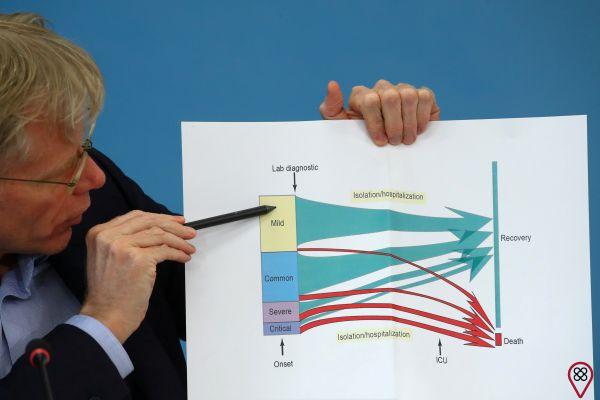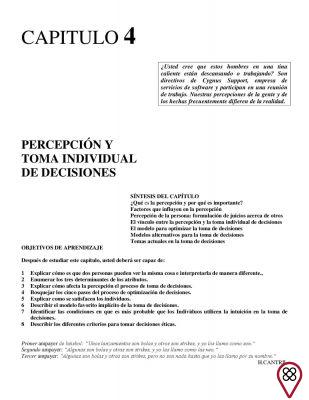You must have heard that for everything there is a purpose in life, including in relation to adverse situations, which serve as learning and are able to bring out the inner strength of each one. From this point of view, it is possible to feel gratitude for everything and to be in favor of life, opening oneself to perceive and receive all the abundance it allows.
When it comes to this feeling, Robert Emmons, PhD in psychology, author of several books and scientific articles and professor at the University of California (Davis), has dedicated himself for decades to studying gratitude and its effects on people's lives. And, among other findings, he identified that, by becoming a habit, it brings more enthusiasm, energy, optimism and happiness. In addition, it improves the quality of sleep, reduces stress, balances blood pressure and allows the individual to let go of emotions such as resentments, disappointments, envy and fear.
Therefore, routinely feeling and expressing gratitude is simple, generates well-being and increases the quality of life. In fact, this is one of those contagious feelings that causes others equally powerful. So continue reading the article and learn how to do this in your daily life.
Way to express gratitude
Feeling gratitude means developing a more positive view of the world around us and identifying the kindness and generosity that are part of our daily lives and that, in the hustle, we don't even notice. Expressing it represents generating other positive feelings, contagious emotions and also creating a chain of good that brings individual and collective benefits.

Thus, people express this feeling from actions performed by other people, called “gratitude triggered by benefits”, that is, when someone does something good for us and we feel grateful. Others, on the other hand, express this through everything that surrounds them, individually and not necessarily through interactions, for example, when they are grateful for life, for having the people they love, etc.
In fact, researchers at Indiana University, in the United States, concluded that having gratitude for the little things in life can generate big changes and that, focusing on this feeling, the brain starts to identify events in a positive way. They emphasize that transformation occurs when one is grateful for different episodes. So see how to express it in a simple way and incorporate it into your routine:
1 – Keep a watchful and aware eye
It is important to activate awareness of the things to feel and express gratitude for. It may seem difficult at first, because we are commonly in an automated posture in front of our routine. For example, you go for a coffee and together you receive a small glass of water. Giving thanks as an automatic reaction, out of politeness or because you received and paid for this service, is different from expressing thanks after having thought about this gesture, which brings the component of the source of life as a purifier of your taste or that has emerged as a kindness added to your request.
In other words, even if the action of the other is part of his routine, you exercise a careful look at what is beyond that and what has come to you. So look for reasons to express gratitude reflectively and consciously. Develop that transformative attitude.
2 – Express gratitude for who you are and the simple things
Just waking up can be a great reason to express gratitude. Here the exercise is one of recognition and joy for living, for seemingly simple things, like rain. Also for being who you are and for receiving immaterial gifts from life. At this point, it is time to give thanks, truthfully and deeply, for individual abilities and talent. Still, smiling, thinking or saying about each of these blessings, such as family, love, affection, opportunities, health, memories, etc.

In fact, it is the occasion to offer sincere praise to the people around you, who offer you company, services, teachings and affection. Likewise, it is up to show pleasure and thank you for the praise or moments of happiness received. It also refers to adopting an optimistic attitude in the face of the weather, someone impatient, a bad mood, or something that comes as a challenge. Then thank them verbally or mentally for learning and maturing.
3 – Express gratitude for what you have, for material goods
Everyone has some material good or some comfort for which to be grateful. So expressing this kind of gratitude generates the recognition that we may have more than we think we need. Even this feeling gives us the notion of sufficiency. And, contrary to what it seems, in addition to not causing comfort, it causes joy.
In fact, according to the article “Giving thanks can make you happier”, published in August 2021 by Harvard Health Publishing, from Harvard Medical School, gratitude helps people focus on what they have, not what they lack. They come to realize that they can be happy and feel satisfied even without achieving all the desired physical and material needs. So, in prayer or during meditation, take the opportunity to express gratitude for each item you have, for food, for nature, etc.
4 – Write gratitude phrases

When writing gratitude phrases, you are willing to find those that make sense to you, and this provokes both reflection and a look at how to express this feeling. And those of philosophers and important personalities are valid as well as your own. So you create a constantly growing list of something new and a new discovery about something to be thankful for or inspired by.
In addition, you can also write notes and send messages to someone you are grateful to have around, as well as someone who has pleased or helped you. In fact, the article “The effects of gratitude expression on neural activity”, published in the March 128 volume 2016 of the scientific journal NeuroImage, highlights that after a few months of expressing gratitude for Through writing, the brain becomes even more grateful, bringing several health benefits. It's as if, instead of being a feeling, it's a muscle that, the more you exercise it, the more potent it gets. Then, turn this action into a routine. Work out!
5 – Tell someone what you are grateful for
Gratitude is a contagious feeling that, when exposed to someone, leads the other to think about what they are also grateful for. So choose a time, as often as you can and wish, to talk about the gifts you have received, how you felt, what you learned, the positive impacts they generated, and what specifically you are grateful for. Keep in mind that this exercise is not a random conversation, but involves reflection to build the list.
Expressing gratitude in this way mobilizes good feelings, positive emotions, and helps to remember and savor good experiences. It also encourages dealing with adversity, in addition to improving emotional, mental and physical health, by promoting a moment of relaxation and self-knowledge. It also allows you to build a closer relationship with the listener, encouraging him to act in the same way.
Despite these suggestions, you can find your own way of expressing gratitude. The important thing is to make it present and frequent in your life, after all it is a feeling that is accompanied by kindness, equally contagious. Then get to know him better below:
What is the feeling of gratitude?
Gratitude is a feeling related to recognition for something received, whether concrete or immaterial, expressed by an emotion of joy and satisfaction. It also involves other feelings, such as reciprocity, love, friendship, well-being and happiness. The word comes from “gratus”, a Latin term that can be translated as “thankful” or “grateful”. It also derives from “gratia”, which means “grace”.
So the feeling of gratitude is explained by “being grateful”. And we usually thank or show ourselves grateful by using the word “thank you” or “thank you”. This term also comes from the Latin “obligare” and means “to bind” and “to tie”, giving an idea of connection, link or communion between the one who offered something and the one who received it. It is important to point out that, as long as it is not out of pure formality, the term can be used to express gratitude. But it means recognition and, therefore, portrays a conscious perception of the added value of something, someone or a situation.

In addition, gratitude is, admittedly, related to individual and collective happiness, notably in terms of established relationships, increasing physical and mental well-being. It also helps in resilience in the face of adversity, as it changes the way we understand them and makes us more optimistic about facing them.
Thus, the feeling of gratitude also helps to develop other feelings, such as generosity and compassion, and generates kindness, all of which are essential for building healthy relationships and a more dignified and fulfilling life. It presupposes a voluntary and altruistic act, for which nothing is expected in return. Above all, this act can be developed and must be practiced through the expression of being grateful.
It is also important to note that, although the feeling of gratitude is stimulated by many religions, it is independent of them. However, it is related to the spiritual evolution of the human being in the understanding of the abundance offered by life and the Universe.
You may also like
- Unveil the indisputable power of the word gratitude
- Understand how to be grateful for the simple things in life
- Take the Gratitude Challenge to Cultivate That Feeling
In conclusion, expressing gratitude is simple and involves being aware of the gifts received, whether material or immaterial, which come in the form of joys or adversities, with which it is possible to learn and evolve. And the feeling of gratitude can be developed and practiced in order to generate well-being, health and individual happiness, as well as infect the community and produce kindness and generosity. So meditate, pray, give thanks, write down your reasons for manifesting it, make weekly lists of things you feel grateful for, and read them at the end of a period. Surprise yourself with the abundance!

























